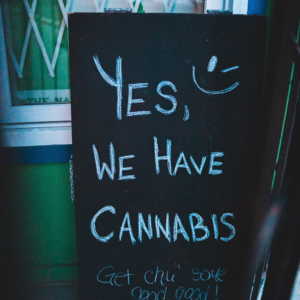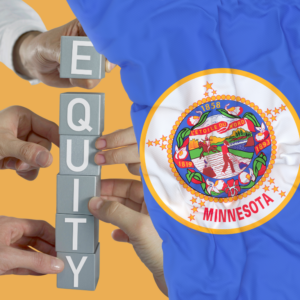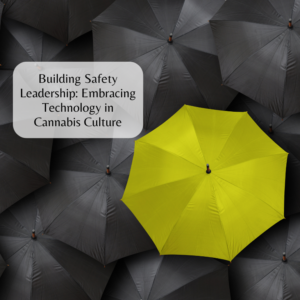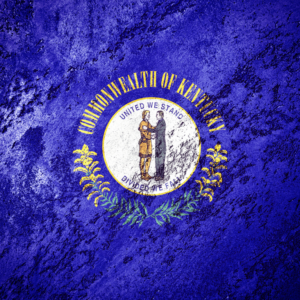Minnesota Cannabis Agency Faces Lawsuits Over Equity Denials

Lawsuits Challenge Minnesota’s Cannabis Licensing Process Amid Discontent Over Denied Applications
Minnesota’s cannabis industry is facing a significant legal challenge after two lawsuits were filed against the state’s Office of Cannabis Management (OCM). The lawsuits aim to delay the state’s upcoming social equity licensing lottery. The legal action follows the agency’s recent decision to deny approximately two-thirds of the social equity applicants, a move that has sparked widespread criticism from those seeking to enter the state’s newly legalized cannabis market.
Background: Minnesota’s Social Equity Program
Minnesota’s cannabis legalization law includes provisions designed to ensure that communities historically affected by cannabis prohibition have a fair chance to participate in the legal market. The state’s social equity licensing program is intended to provide individuals from these communities an opportunity to apply for cannabis business licenses under favorable conditions. However, the process has been met with controversy and dissatisfaction.
OCM Denials: What Led to the Lawsuits?
The OCM recently denied around 1,200 of the social equity applications, or roughly two-thirds of the total submitted. The reasons for these rejections varied but primarily revolved around technicalities such as incomplete paperwork or concerns about applicants submitting excessive numbers of applications in an attempt to improve their chances of pre-approval. Some applicants were accused of “flooding” the application pool, a tactic that the OCM argued could undermine the integrity of the process.
In response to these denials, eight applicants filed lawsuits against the agency. The plaintiffs contend that the OCM’s denials were arbitrary, lacked clear explanation, and were based on inconsistencies in how the evaluation process was applied. The lawsuits call for a temporary restraining order to delay the upcoming lottery and demand that applicants be given the opportunity to correct any minor paperwork issues.
Lawsuits Seek to Delay the Lottery and Address Paperwork Issues
The first lawsuit, filed by an attorney representing six denied applicants, argues that the OCM’s decision-making process was unfair and inconsistent. The plaintiffs claim that their denials were due to trivial errors in their paperwork, which could have easily been corrected. The lawsuit also alleges that the OCM did not provide adequate explanations for the denials, leaving applicants uncertain about the specific reasons for their rejection.
The second lawsuit, filed by one of the denied applicants, Cristina Aranguiz, questions the agency’s rationale for rejecting her application. Aranguiz asserts that the reasons provided by the OCM for her rejection made no sense, especially when considered against the state’s established requirements for cannabis business applicants.
Both lawsuits aim to prevent the lottery, scheduled to take place soon, from moving forward until the court can review the allegations and address the claims made by the applicants.
The Role of the OCM in Social Equity Licensing
The OCM is responsible for overseeing Minnesota’s cannabis licensing process, including both general and social equity applicants. As part of the state’s efforts to rectify past injustices related to cannabis prohibition, the social equity program was designed to prioritize individuals from communities that have been disproportionately affected by the War on Drugs.
While the program’s intent is to offer opportunities to historically marginalized groups, the recent denials and the lawsuits have raised concerns about the effectiveness of the program. Critics argue that the OCM’s denials are preventing deserving applicants from participating in the new cannabis industry, while some applicants claim that the system is being unfairly manipulated by others using loopholes.
OCM’s Response to the Lawsuits and Rejections
In response to the lawsuits, Charlene Briner, interim director of the OCM, defended the agency’s actions. She argued that the denials were justified, particularly in cases where applicants tried to manipulate the process by submitting multiple applications. According to Briner, this tactic, referred to as “flooding the zone,” was a deliberate attempt by certain individuals to gain an unfair advantage in the lottery, undermining the integrity of the social equity program.
Briner’s statement emphasized that such tactics have been observed in other states and were anticipated by the authors of Minnesota’s cannabis legislation. The law was specifically crafted to prevent the exploitation of the licensing process and to protect the interests of legitimate social equity applicants. Briner expressed concern that the lawsuits were an attempt to delay the program and potentially disrupt the goal of creating an equitable and inclusive cannabis market in the state.
Concerns Over the Impact of Delays
The ongoing lawsuits and potential delays in the lottery process are raising concerns about the timeline for launching Minnesota’s cannabis industry. As the state moves closer to the start of the legal cannabis market, any delays in the licensing process could push back the opening of retail cannabis operations and delay the economic benefits the state is expecting from legalization.
For social equity applicants, the delay is particularly frustrating, as many of them have been waiting for an opportunity to access a market that could provide significant economic opportunities. The lawsuits, while intended to address perceived injustices in the licensing process, also raise questions about how the state can balance the need for fairness with the desire for swift implementation of cannabis legalization.
The Future of Minnesota’s Cannabis Industry
As the lawsuits proceed, the future of Minnesota’s cannabis industry hangs in the balance. The state’s social equity program is seen as a model for other states looking to address the historical inequities tied to cannabis prohibition. However, the legal challenges now faced by the OCM underscore the difficulties in creating a system that is both fair and effective in providing opportunities to those who have been most affected by the War on Drugs.
It remains to be seen how the courts will rule on the lawsuits and whether the state’s social equity program will be delayed further. For now, the focus is on resolving the disputes and ensuring that Minnesota’s cannabis licensing process is transparent, equitable, and accessible to all eligible applicants.
Navigating the Legal Challenges of Cannabis Legalization
Minnesota’s cannabis industry is at a crossroads, as the state’s social equity licensing process faces legal challenges that could delay its launch. The lawsuits filed against the Office of Cannabis Management reflect broader concerns about fairness, transparency, and the potential for exploitation within the state’s cannabis program. While the legal battles continue, it is clear that Minnesota’s experience with cannabis legalization will serve as a critical case study for other states working to balance social equity with the rapid development of a legal cannabis market.
As the state moves forward, it will need to address these challenges and ensure that its social equity program lives up to its promises of fairness and opportunity for those most affected by cannabis prohibition.











